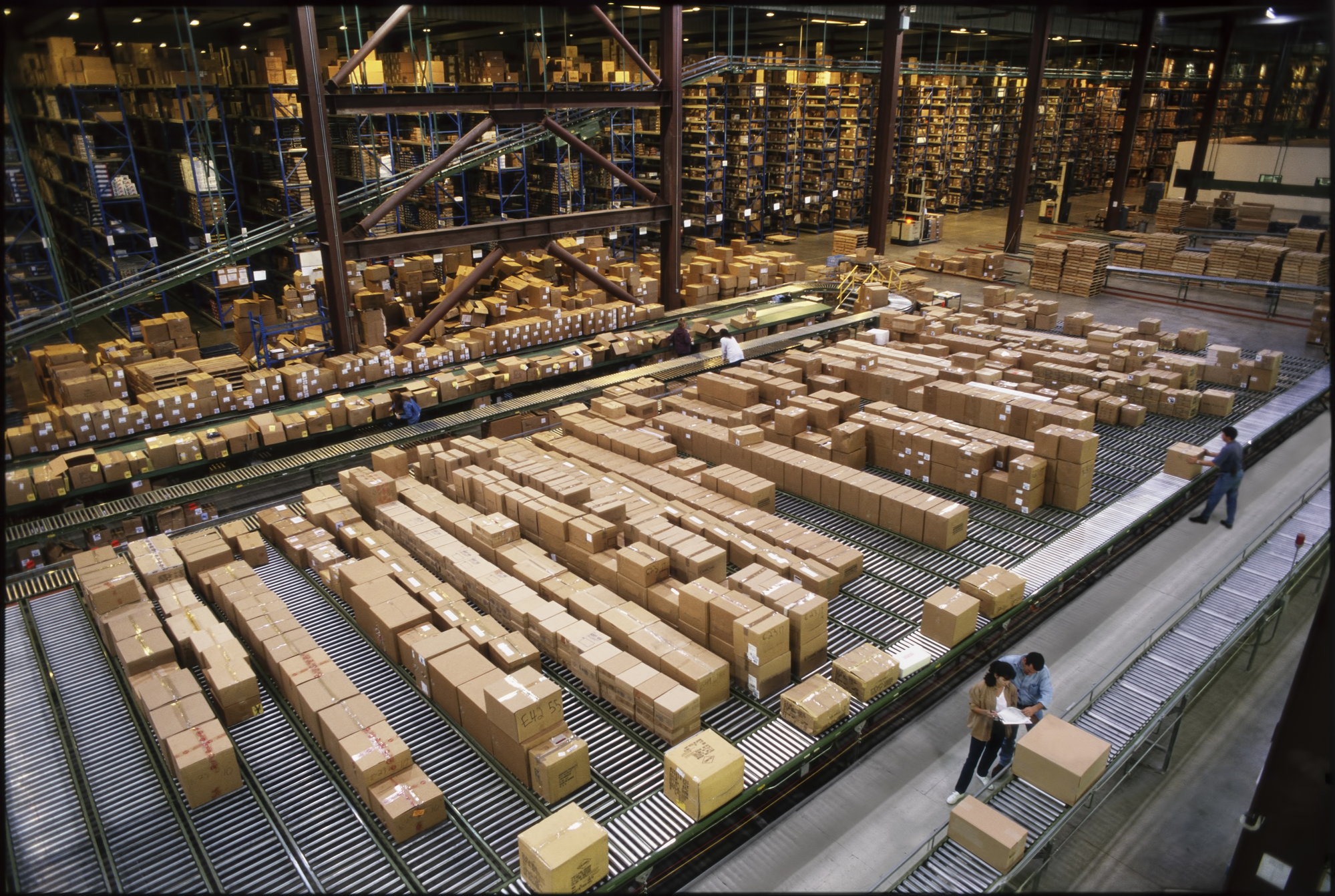Welcome to Leadership Lessons — real stories from supply chain leaders on how they built their careers, what they’ve learned along the way, and where they’re headed next. In this edition, we talk with Dean Bain, Senior Vice President of Supply Chain at Coupa Software. He shares how his love of engineering and experience owning a company at age 20 shaped his leadership style and led him into supply chain software.
Supply Chain 24/7: Tell me a little bit about your upbringing — where you’re from and how you got your start?
Dean Bain: My family is originally from Scotland, but in the mid-70s, my dad landed a manufacturing job in South Africa, so the whole family relocated. I was born there and spent the early part of my childhood there.
When I was about four, we moved to the U.S., where my dad worked in CNC machining and metallurgy, mostly in automotive, and then transitioned into sales, selling cutting tools and CNC products. We stayed in the U.S. until I was around nine, then moved back to Scotland, where I finished high school.
All through high school, my dream was to join the Royal Air Force and become a pilot. I even put myself through an Air Force cadetship outside of school. That was the path I thought I was on. But my older brother had stayed in the U.S., and my family made the decision to bring us all back together. So, I gave up that plan and moved back to the U.S. in 1997. I’ve been here ever since.
SC247: How was the transition to college in the U.S.?
DB: Honestly, I had no idea how college worked here. When my parents told me we were moving to Tennessee, I assumed that meant I had to go to school there so I ended up at the University of Tennessee.
Thanks to some great teachers, I was really into technology and computer science through high school. I started out in computer science at UT, but I realized pretty quickly that sitting in a lab at 2:00 a.m. wasn’t for me. After freshman year, I switched to mechanical engineering. My grades improved, and I found something I really loved doing.
SC247: Were there any mentors that helped guide that change?
DB: Yeah, especially through UT’s International House. I didn’t grow up in U.S. culture, so finding that international community gave me a real sense of belonging. Most people don’t expect Knoxville, Tennessee, to have a big international student presence, but it does.
And yeah, I was all in. I painted my face, sang “Rocky Top,” rushed the field after we beat Florida, and tore down the goalposts. It was a full-on college football experience.
Taking the Leap: Launching a Business at 20
SC247: Did you intern during college?
DB: My path was a little different. Through my dad’s network, I got connected with a Swiss company that made these really unique CNC workholding devices. I paused college and moved to Chicago, and at 20, I started my own business as the exclusive U.S. distributor.
I set up a rep network across the U.S. and Mexico and later brought in additional product lines from the UK and Italy. I focused completely on that business for three years.
Eventually, I realized I’d hit a point where I needed either a lot more capital or more experience to take it further. At a big trade show, I heard that a competitor was planning to build a similar product. So I went to them and said, “Why build it when you could buy it?” And they did. That was my exit.
“I spent half a day going from station to station, learning as much as I could. I knew I had to prove myself. I built relationships, learned fast, and just put my head down and worked.”
SC247: What did you do next?
DB: I had no real plan. A sales manager from a trade show company I knew called and asked if I was doing the next show. I told him I had sold the business and didn’t know what was next. He invited me to lunch and said, “You get this business. Come work here.”
I didn’t think it would be long-term, but I joined and ended up staying for about 18 months. Then I moved back to Nashville, and that was my point of reflection. I thought about everything I’d been involved with — import/export, global trade, distribution — and realized that supply chain was where I wanted to be.
SC247: How did you break into the supply chain software world?
DB: I started in sales at DHL Express, which was during their push into U.S. domestic delivery. That didn’t go well, and eventually they pulled out. After that, I joined UPS, which was a great experience. Strong culture, excellent training.
But I knew I wanted to bring together my interests in logistics, tech, and engineering. I started looking into supply chain software companies like Manhattan Associates and RedPrairie. I ended up landing at RedPrairie, which focused on warehousing and transportation software.
SC247: RedPrairie was acquired shortly after, right?
DB: Yeah, about seven months in, they were acquired by JDA. I was in the field with two associates when I got the email, and I thought, “I just got here. Now what?”
But that early entrepreneurial mindset helped. I saw it as an opportunity. At the next internal sales conference, they had demo stations for all the new product lines. I spent half a day going from station to station, learning as much as I could. I knew I had to prove myself. I built relationships, learned fast, and just put my head down and worked.
That helped me grow into leadership roles. Over the next 10 years — including after we rebranded as Blue Yonder — I led verticals like industrial and automotive.
“As someone who started a business at 20, I’ve always treated every job like it’s my own. Like it’s my money, my investment. That kind of pride and ownership — I found that same mindset here.”
Leadership Today: Vision, Culture, and What’s Next
SC247: What led you to leave Blue Yonder after a decade?
DB: A few things. First, 10 years is a long time in this space. Then Panasonic acquired Blue Yonder, and with that came big structural changes. I didn’t see a clear next step for me in the new setup. I figured new leaders would bring in their own people.
So, I started looking for something where I could take on more responsibility. I joined a smaller Swedish company called Syncron, which focused on aftermarket parts planning. I’ve always loved cars and engineering, so that role made a lot of sense.
About 18 months ago, I was approached by Coupa.
SC247: What stood out about the Coupa opportunity?
DB: It was the chance to step into a general management role for an acquired business that needed clarity and leadership. I came in with a 90-day plan focused on three things: people, product, and brand.
First, we needed the right people—the software we offer is complex and built on trust. It’s not like selling a CRM. Then, we needed to clarify the product vision and understand how it fits into Coupa’s broader strategy around total spend management. Finally, we had to look at the brand.
Coupa had acquired a business with a strong legacy in supply chain — Llamasoft — but some of that brand equity had faded. So part of the work was about honoring that legacy while making sure it aligned with Coupa’s future.
SC247: How would you describe the culture at Coupa?
DB: Honestly, I’ve never felt more welcomed. The people on the supply chain side are incredibly passionate. They care deeply about what they do and where the product comes from. Everyone I met was willing to do more than their job description, and that really resonated with me.
As someone who started a business at 20, I’ve always treated every job like it’s my own. Like it’s my money, my investment. That kind of pride and ownership — I found that same mindset here.
SC247: What’s your day-to-day like now?
“This is a huge opportunity for our business and for our customers. What we do every day is help people deal with uncertainty. The only constant is change, and we help companies plan for the ‘what ifs.’”
DB: It’s very diverse. I work across everything from product strategy to sales, go-to-market, customer delivery, support, and customer success. I spend a lot of time with customers, making sure our internal strategy connects to execution.
SC247: Looking ahead, how do you feel about the market and where things are going?
DB: To me, this is a huge opportunity for our business and for our customers. What we do every day is help people deal with uncertainty. The only constant is change, and we help companies plan for the “what ifs.”
Whether it’s political pressure, trade issues, power outages, or something totally unexpected, we give customers the tools to say, “If this happens, here’s how we respond.” That’s powerful. And that’s the value we bring.
Outside the Office
SC247: Let’s lighten it up — what are you watching these days?
DB: I’ve been into Shrinking, and it’s great writing. I’m also really into golf these days. It’s relaxing and totally different from my work life. And I’m a big fan of Formula 1 and still follow a few soccer clubs back in the UK.
SC247: What would your kids say is your biggest strength and weakness?
DB: Strength? They’d probably say I’ll take on any challenge. Like, “Dad, how do you know how to build that?” And I’m like, “I don’t. I just figure it out.” I’ve always had a curious mind.
Weakness? Probably balance. I have a busy mind and lifestyle, and slowing down, taking time for myself and family — that’s something I’m always working on.
SC247: Do you have a philosophy that guides the way you lead?
DB: I treat every job I’ve had like my own business. That mindset changes how you show up. And I think teams that work that way are stronger, more accountable, and ultimately more successful.




